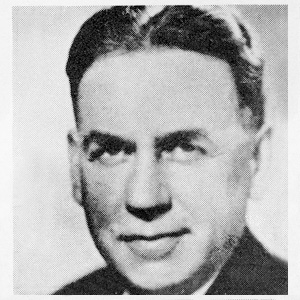Vernon Dalhart sang and recorded "The Prisoner's Song," which became country music's first multi-million-selling record and helped launch the genre as a commercial force. His recorded repertoire also includes many of country's other early standards.
He was born Marion Try Slaughter II (named after a grandfather) and raised in northeast Texas. In late 1907, he moved to New York City. By 1910, he was being cast in operetta and opera productions. In 1911, he adopted his stage billing, Vernon Dalhart. It derives from the names of two towns in Texas.
Dalhart began recording in 1916. In 1924, Virginia's Henry Whitter recorded "The Wreck on the Southern Old '97" for Okeh Records. Noting its popularity, Victor Records recruited Dalhart to perform a more polished version of the song. In need of a B-side for the record, Dalhart suggested "The Prisoner's Song." The resulting disc became a national sensation, selling an estimated three million copies.
The authorship of "The Prisoner's Song" is murky. Dalhart learned it from his young cousin, Guy Massey. Guy learned it from his older brother, Robert Massey. Robert learned the song from a fellow inmate while serving a jail sentence. Also variously titled "Meet Me by Moonlight Alone," "Prison Walls" or "If I Had the Wings of an Angel," its folk-music source might have been a song in the repertoire of the early nineteenth century touring group the Hutchinson Family. Guy Massey's name appeared on the sheet music.
Between 1925 and 1928, Vernon Dalhart popularized such classics as "In the Baggage Coach Ahead," "The Letter Edged in Black," "The Death of Floyd Collins," "The Rovin' Gambler," "Little Rosewood Casket," "Casey Jones," "Wreck of the Shenandoah," and "The Wreck of the Number Nine." Dalhart's last popular recordings were issued in 1930.
Despite his early prominence and lifetime sales estimated at 15 million, Vernon Dalhart was largely forgotten by the 1940s. He was a voice instructor and a night clerk at a hotel in Bridgeport, Connecticut when he died of a heart attack in 1948.
A campaign to have him enshrined in the Country Music Hall of Fame took place during the 1960s and 1970s. Part of this campaign involved saluting him with membership in the Nashville Songwriters Hall of Fame in 1970, even though he was not a composer. Vernon Dalhart was finally inducted into the Country Music Hall of Fame in 1981, and "The Prisoner's Song" went into the Grammy Hall of Fame in 1998.
